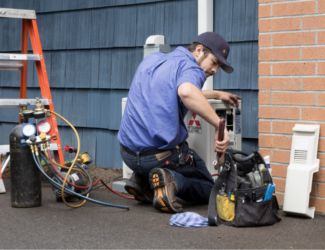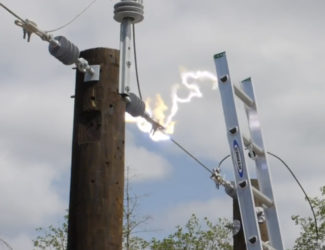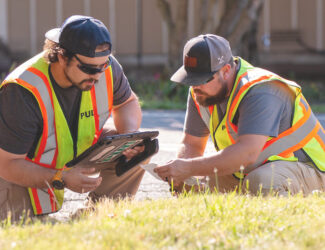
Climate change policy
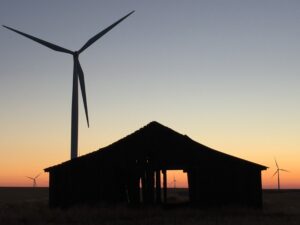
Snohomish County PUD has become one of the first utilities in the region to adopt an official climate change policy as well as supporting principles and strategies.
In adopting the policy, the PUD’s Commissioners recognized that climate change is a serious global problem and emphasized their commitment to using natural resources more efficiently. The utility is located in one of the fastest-growing counties in the region and wants to meet the challenges that rapid growth presents with thoughtfulness and a sensitivity to helping preserve our environment.
Policy
Snohomish County PUD will provide electric, water and associated services to its customers in an environmentally responsible way while increasing economic value, financial stability and operational safety and security for our ratepayers. Snohomish County PUD faces significant challenges and some uncertainty in serving community growth while at the same time addressing the issue of global climate change.
Climate change is a serious global problem, and we believe that it should be addressed through the development of thoughtful and forward-looking legislation that actually results in the reduction of greenhouse gas emissions in a workable and cost-effective manner. It is also important that any legislative solutions promote and provide incentives for the development and application of innovative technologies as part of a climate change strategy.
The Northwest’s investments in energy efficiency and renewable hydroelectricity have yielded substantial environmental benefits. We will continue this legacy by meeting customer growth through conservation and a diverse mix of renewable technologies including, but not limited to, wind, tidal, solar, biomass, and geothermal.
Using our natural resources more efficiently and wisely makes good environmental and economic sense. Therefore, legislation to reduce greenhouse gas emissions, if done correctly, should not negatively impact the nation’s economy or competitiveness.
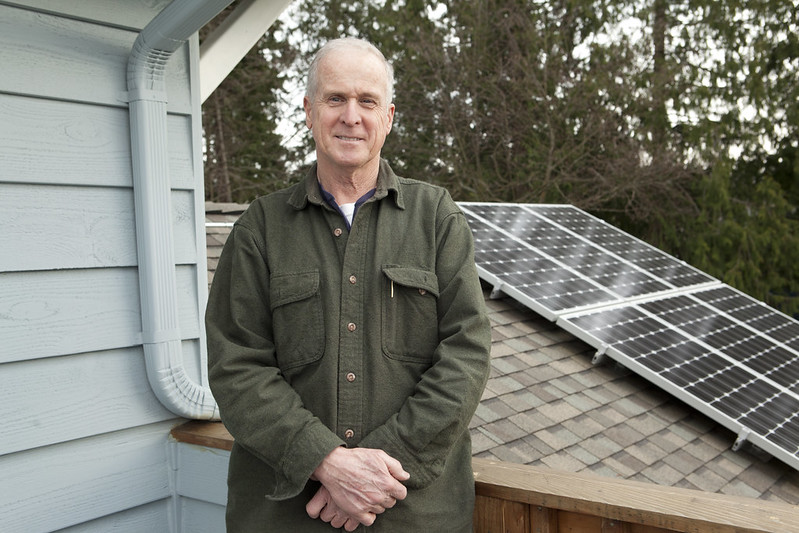
PUD principles for climate change
Snohomish County PUD promotes the following principles to guide legislation and will incorporate the following strategies to guide our actions.
- Legislative action to address climate change should involve all sectors of the economy and all sources of greenhouse gases.
- Any actions should consider the economic impacts on consumers, especially those who are financially challenged.
- Legislation and regulation should favorably recognize and credit the historical investments in energy efficiency and renewable resources, which have mitigated or avoided greenhouse gas emissions.
- The PUD prefers a single, comprehensive, national approach to addressing climate change; however, if states or other local jurisdictions create related legislation, it should be compatible with other climate change initiatives in order to facilitate implementation and ensure reasonable certainty.
- A clear and definitive regulatory framework for climate change is an absolute necessity. Otherwise, it will be difficult for utilities to determine the most prudent path for securing and maintaining the necessary financing capability to make appropriate long-term investments.
- The Northwest region should not be required to subsidize the mitigation of greenhouse gases in other parts of the country that depend on substantial fossil fuel generation. The Northwest has been mitigating, at considerable cost, the environmental impacts (e.g., fish and wildlife) associated with its hydro-based generation. At the same time, the Northwest faces significant growth pressures that will demand large financial investments to acquire the necessary levels of new renewable technologies.
- Each region of the country should mitigate its own environmental impacts and implement its own new technologies such that the investment associated with the reduction of greenhouse gas emissions is consistent with the level of contribution to the problem.
- The two most commonly debated approaches to stimulating investment in new clean technologies are “carbon or production taxes” and “cap-and-trade.” At this time, the PUD does not support one approach over the other. Both approaches have inherent complexities and attributes that can either help or penalize the Northwest. There are some overarching basic principles that should drive the debate about these two approaches.
- If a production or carbon tax approach is considered, it should only apply to those activities that actually produce greenhouse gas emissions. Such a tax on existing or future renewable resources is both illogical and counterproductive.
- If a cap-and-trade approach is considered, allowances should be allocated equitably (e.g., load-based) across the utility industry and should not be based on current or historic levels of greenhouse gas emissions. To do otherwise would be to reward high emissions regions while penalizing those whose contribution to the problem has been minimal.
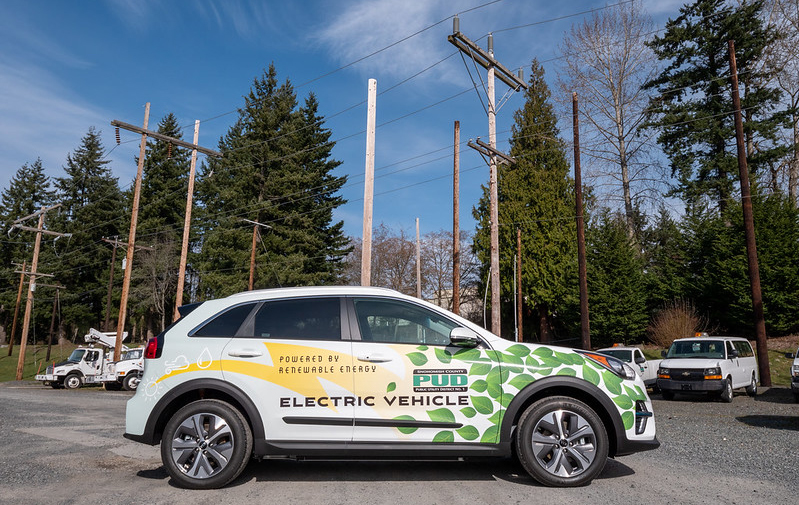
PUD strategies for climate change
- Reduce energy use by improving the energy efficiency of our own utility generation, transmission, distribution, and administrative facilities.
- Fully comply with state requirements (I-937) to secure all cost-effective conservation from our customer base.
- Utilize integrated resource planning standards that: a) consider the long-term costs and risks associated with greenhouse-gas-emitting generation sources and b) consider a diversity of resource options that provide the optimum balance of environmental and economic elements.
- Monitor emerging technologies and best practices for local application where appropriate.
- Monitor and evaluate the actual changes that are occurring in the climate (e.g. snow pack, etc.) and adapt effectively to the actual impacts of climate change on our utility operations.
- Educate our customers and promote public awareness on climate change issues.
- Influence public policy forums on climate change at the local, state and national level for the benefit of our ratepayers.
- Support the creation and location of innovative industries in our service territory that manufacture products or offer services that reduce greenhouse gas emissions.
- Support and recognize the efforts of our employees in the creation and deployment of innovative programs and actions to reduce both their individual and the PUD’s contribution to greenhouse gas emissions.
- Seek to reduce greenhouse gas emissions resulting from non-generation activities by modifying activities where it can be accomplished at a reasonable cost while still maintaining high levels of customer service.
- Evaluate, on an ongoing basis, how the Policy, Principles and Strategies outlined in this document are helping us meet our overall goals and make adjustments when and where appropriate.




